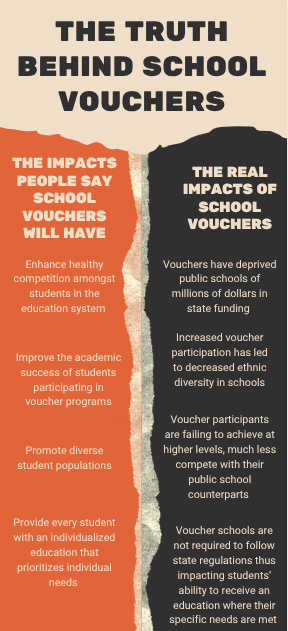On May 16 2017, Dr. Jordan Peterson, a doctor in psychology, professor at the University of Toronto, and freedom-of-speech spokesperson, appeared at the Canadian Senate to protest Bill C-16, a bill that he heavily criticized for being ill-defined, poorly thought through, and open-ended in a way that infringes on citizens’ freedom of speech by forcing people to use certain words. Peterson gained some notoriety from the left because of his criticisms. Later on August 1, Peterson attempted to log onto his Google account to no avail. He was blocked out with no explanation given by Google. While the account has since been reinstated and Google has given no explanation as to why the account was blocked, it has been heavily speculated that the block was because Peters criticised C-16. Google is suspected of censoring Peterson from the entirety of their platforms merely because they did not agree with his ideas and opinions. And though the reality is not known, Google still has yet to confirm or deny their motives, something some have called suspicious.
Google is a very big company. That much is well known. Nowadays, Alphabet (Google’s parent company) seems to have a monopoly on many aspects of the internet. This fact can be seen when one observes that Alphabet owns 77.13% of the Global Net Market, and is responsible for 4.5 of the 6.6 billion internet searches made every day according to Smart Insights. A monopoly is something very dangerous to the free people, as they have a chance of amassing too much power and taking away citizen’s freedoms. Some monopolies are good and natural, such as the telephone and water companies, where it makes sense to have a few or even one heavily government-regulated company monopolize basic American utilities. However, the tech/entertainment market has grown exponentially over the past ten years, and has arguably become another basic American utility. But, unlike the energy and water companies, Alphabet has been regulated very little by the U.S. Government. And the worst fear behind monopolies, the fear that they have so much power that they can infringe on the Free People’s rights unfettered, has already begun to be realized in Alphabet, with their seemingly left-oriented censoring agenda.
Alphabet has reflected left-leaning ideals, through the open support of organization Black Lives Matter, or the numerous Doodles of important LGBT figures. While it is perfectly natural for the public view to shift on the political spectrum over time, it is important that the central and right-leaning opinions do not get completely drowned out by the majority left opinion. It is important for every American to be able to voice their opinions and ideas openly without any hindrance, allowing for the “free market of ideas” to exist. In the “free market of ideas”, both opinions on an issue are properly voiced, and the majority opinion wins the topic argument fairly.
But Alphabet has begun to show its belief that it is acceptable to silence the minority opinion from being voiced, something some of the worst governments and monopolies have been guilty of in the past. Examples of this include the removal of the right-wing news site The Daily Stormer from Google’s search results, or the de-monetization/sanctioning of centrist/right leaning videos from Youtube, or even the (unconfirmed) targeted harassment of non-left spokespeople like Prof. Jordan Peters by suspending their entire Google account. And while some would say that Alphabet is a private company and can deny their services to whoever they wish, the truth is that Google has become an integral part of American lives, a position that is very powerful and potentially dangerous to the very users if abused.
These are some shocking facts, but let’s see how it affects West Ottawa. The first thing that comes to mind is the Chromebooks that were passed out last year. The affordable, simple, and sleek device that greatly improves the day-to-day learning experience for students. On top of that, other Alphabet services such as Classroom or Drive have become essential for the school to operate. Instructor Teresa McCrumb said “I use them every day. Because a lot of times, beyond the idea that there’s content [online] to be retrieved, I provide a lot of information to them through Classroom, so I want them to have Classroom open. If they’re taking some kind of notes on the content we’re teaching, they put it in their notebook that they’re creating electronically. So, every day.”
It would be safe to say that the district has become highly dependent on Google services. But with these recent developments in Alphabet’s anti-free-speech behavior, the district’s dependency on Alphabet’s searches might not be such a good thing. In fact, the possibilities could get very 1984, a novel by George Orwell about a corrupt government that controlled how its citizens thought.
Dillon Palmer, a student who has taken the Tech Support Internship course multiple times, has worked with Chromebooks much more than the average student. Palmer recognises the risks of becoming too dependant on Alphabet, saying “It would be very easy [to censor students] on all Google-run areas of the internet, including Google Chrome. About as easy as a push of a button.”
Imagine if you were a student at West Ottawa and had to learn and formulate opinions about certain world, cultural, or historical issues in your social studies class. Your opinions might not be held to the highest standard in the public eye; nevertheless, they are your opinions. You write the opinions on a Google Doc and turn them in via Google Classroom. However, you soon get a notification that Alphabet has became aware of the opinions you were stating, didn’t agree with them and decided to suspend your Google accounts. Now you cannot participate in the classroom environment nearly as well, your ability to take assessments or complete assignments has been greatly handicapped, and neither you nor the school district can do a thing besides admitting you committed a Thoughtcrime and beg on your knees for forgiveness.
Sounds awful, right? Unfortunately, this scenario is not entirely unrealistic. This Orwellian nightmare scenario is something that is not only detrimental to the school system and the growth and learning of students, but to the average everyday American as well. And thought it is the worst case scenario, Alphabet’s users, including the WO District, must openly and strongly oppose the threat of infringement on their civil rights.
The West Ottawa School District needs to be wary of Alphabet, a conglomerate that it has become far too dependant on.







